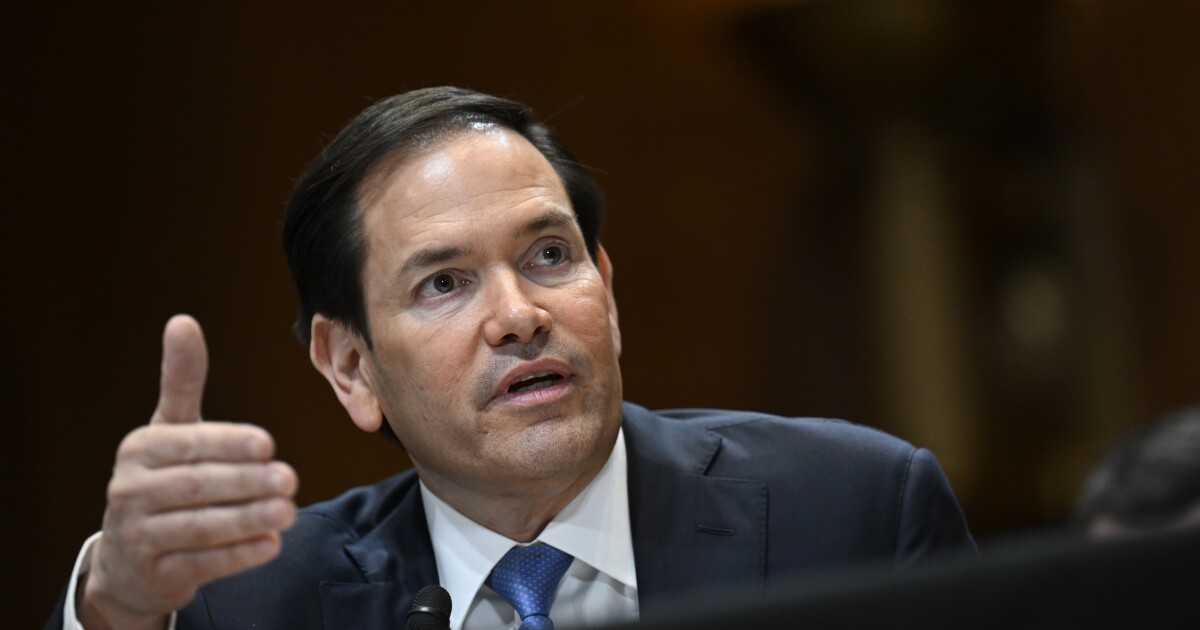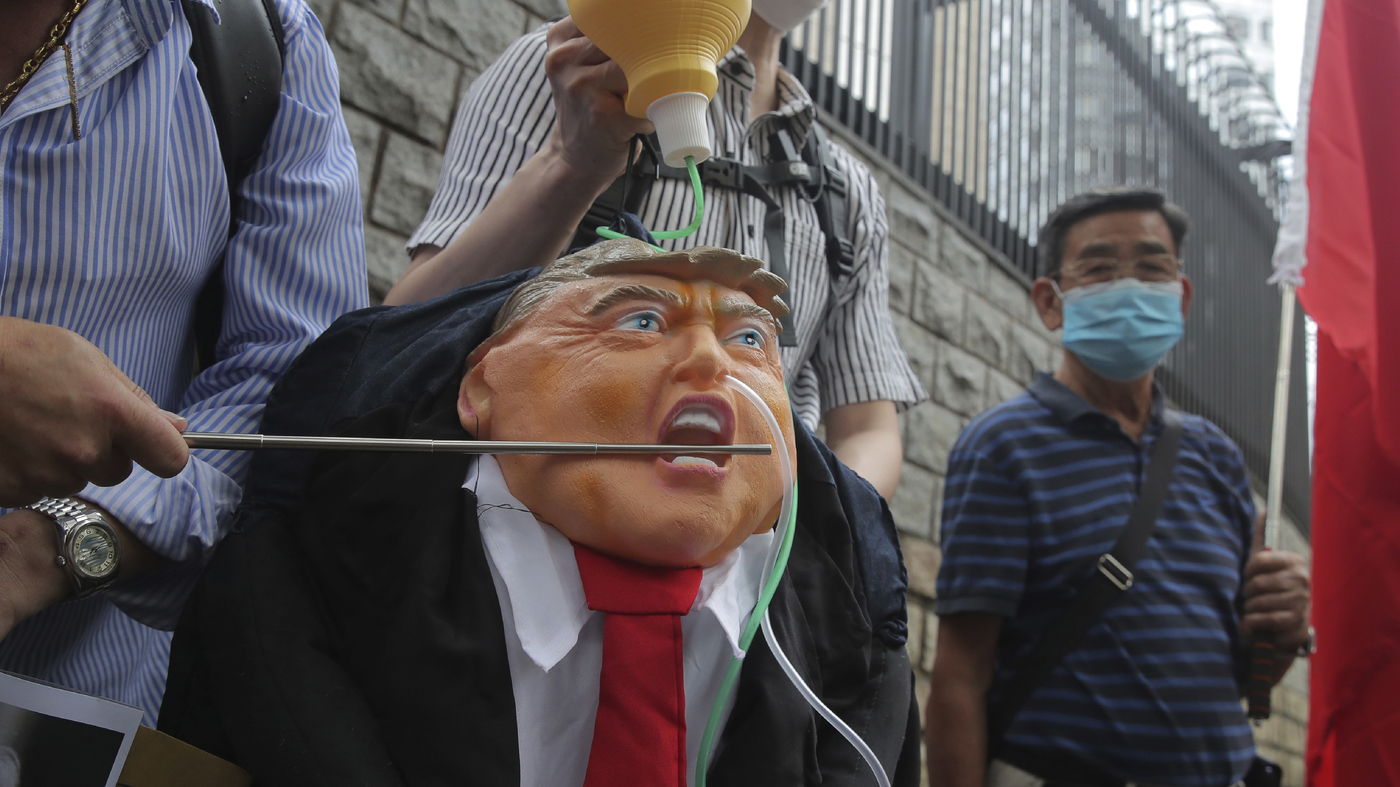## Level Up or Level Down? The Impact of Visa Restrictions on the Future of Gaming Tech
Imagine a world where groundbreaking advancements in AI, VR, and game development stagnate. A world where the next generation of gaming consoles and immersive experiences are held back by a lack of talent. This isn’t a dystopian sci-fi plot, it’s a real possibility if the US revokes visas for Chinese students, according to a recent NPR report.

Who Pays the Price? The Human Cost on Chinese Students

The recent announcement by Secretary of State Marco Rubio regarding the “aggressive” revocation of visas for Chinese students has sent shockwaves through the academic community, particularly within China and the United States. While the stated rationale behind this move centers on national security concerns, the human cost on individual Chinese students is immense and far-reaching. For many, the dream of pursuing a higher education in America, a beacon of opportunity and intellectual excellence, has been shattered.
Gamestanza spoke to Aaron, a Beijing native who was one of over a thousand Chinese students who lost his visa in early September. “I was devastated,” he shared. “I had spent seven years in the U.S., building relationships, studying, and preparing for my future. Now, all of that is gone.” The revocation, based on allegations of undisclosed ties to China’s military, has left Aaron facing an uncertain future and the agonizing prospect of never being able to return to the country he considers a second home.
Beyond the immediate personal impact, the revoking of visas creates a climate of fear and uncertainty for the entire Chinese student community in the U.S. The chilling effect on future applicants is undeniable, as the prospect of bureaucratic hurdles, scrutiny, and potential expulsion looms large. This not only impacts individual aspirations but also undermines the long-standing academic exchange and cultural understanding that has benefited both countries.

The Stifling of Collaboration: A Loss for Scientific Progress
The potential for scientific progress and innovation hinges on the free flow of knowledge, ideas, and talent across borders. The U.S. has long been a magnet for international students, attracting some of the brightest minds from around the globe, including China. However, the tightening of visa restrictions threatens this vital source of intellectual capital.
A recent report by the U.S.-China Education Trust highlights the significant contributions of Chinese students to American research and development. “Chinese students contribute billions of dollars to the U.S. economy through tuition, research, and entrepreneurial ventures,” says Rosie Levine, the organization’s executive director. “Their presence enriches the academic environment and fosters a culture of collaboration that drives innovation.”
The report also emphasizes the danger of losing this talent pool. “By turning away Chinese students, the U.S. will lose a critical reserve of soft power and talent that directly contributes to our competitiveness,” warns Levine. “It will also stifle scientific progress and hinder our ability to address global challenges.”
The recent case of Aaron, the Beijing native whose visa was revoked, exemplifies this loss. He was pursuing a degree in sociology with a focus on international relations, a field where cross-cultural understanding and collaboration are paramount. His research involved analyzing the impact of globalization on social structures, a topic of immense relevance in an increasingly interconnected world.
The “Gospel” of American Education and Its Shifting Reality
China’s Aspiring Elite: The Allure of a US Degree
For decades, the allure of a prestigious American education has captivated generations of Chinese families and students. The United States has been seen as the land of opportunity, where academic excellence is rewarded, and where a degree from an elite institution can open doors to a brighter future.
Brian Taylor, a managing partner at Ivy Coach, an admissions counseling company, observes, “Chinese parents, they believe that the U.S. News and World Report ranking [of colleges and universities] is the Bible, and they want to attend the very best school.” This “education gospel,” as Syracuse University sociology professor Yingyi Ma terms it, reflects a desire for alternatives to the ultra-competitive and rigid Chinese education system.
The Changing Landscape: Declining Chinese Student Numbers
While the allure of American education remains strong, the number of Chinese students enrolling in U.S. universities has been steadily declining in recent years. Tensions between the two countries, coupled with the global pandemic and the tightening of visa policies, have created an atmosphere of uncertainty and apprehension.
Last year, India surpassed China as the largest source of international students in the U.S. This shift underscores the growing competition for international talent and the potential consequences of restrictive visa policies on American educational institutions.
The Future of International Education: A New Era of Uncertainty
The current trajectory raises serious questions about the future of international education. If the U.S. continues to alienate potential students from China, it risks losing its position as a global leader in higher education and innovation. The world’s brightest minds will seek opportunities elsewhere, and the U.S. will be the poorer for it.
Navigating the Complexities: Finding a Path Forward
Balance and Security: Addressing National Security Concerns Responsibly
National security concerns are legitimate and must be addressed. However, they should not be used as a pretext for blanket restrictions that harm individuals and undermine the benefits of academic exchange. A more nuanced approach is needed, one that balances legitimate security concerns with the need to foster international collaboration and innovation.
This involves:
- Improving vetting processes to identify genuine threats while avoiding profiling or discrimination based on nationality.
- Enhancing transparency and due process to ensure that students are treated fairly and have access to legal recourse.
- Strengthening cooperation with Chinese authorities to share information and address concerns in a mutually beneficial manner.
- Informed of the specific concerns against them.
- Given a fair opportunity to respond to those concerns.
- Allowed access to legal counsel.
- Protected from arbitrary or discriminatory actions.
- Prioritize diplomacy and dialogue to build trust and address concerns constructively.
- Promote cultural exchange programs to foster understanding and break down stereotypes.
- Invest in partnerships with Chinese institutions to support joint research and innovation.
The Need for Transparency and Fairness: Ensuring Due Process for Students
The recent visa revocations have raised serious concerns about transparency and due process. Students have been accused of undisclosed ties to the Chinese military without being given a clear explanation or opportunity to defend themselves. This lack of clarity and fairness erodes trust and creates an environment of fear.
Gamestanza believes that all students, regardless of their nationality, deserve to be treated with respect and fairness. This means ensuring that they are:
Building Bridges, Not Walls: Fostering International Collaboration
Despite the challenges and tensions, it is essential to remember the long-term benefits of international collaboration. The exchange of ideas, knowledge, and talent between the U.S. and China has been mutually enriching and has contributed to global progress in countless fields.
Moving forward, Gamestanza urges policymakers to:
The future of international education and scientific collaboration depends on our ability to find solutions that balance security concerns with the fundamental values of openness, fairness, and mutual respect.
Conclusion
The potential revocation of student visas for Chinese nationals studying science and technology in the U.S. is a complex issue with far-reaching implications. As NPR details, this move could significantly impact American innovation, as Chinese students contribute greatly to STEM fields, filling crucial research roles and driving technological advancements. The article highlights the fear among academics and industry leaders that limiting access to these bright minds will stifle progress and cede ground to rival nations in the global tech race.
Beyond the immediate economic and scientific consequences, this issue raises deeper questions about international collaboration and the future of innovation. Will restricting talent flow hinder the free exchange of ideas that has historically fueled scientific breakthroughs? Will it create a more fractured and competitive global landscape, ultimately harming everyone involved? The answers to these questions remain uncertain, but the potential consequences are significant. America’s role as a global leader in science and technology hinges on its ability to attract and retain the best minds, regardless of their nationality. The path chosen today will undoubtedly shape the technological landscape of tomorrow.
The question isn’t just about visas; it’s about the very soul of innovation. Can we truly claim to be champions of progress while erecting walls that limit the flow of knowledge and talent? The future of American ingenuity may well depend on the answer.